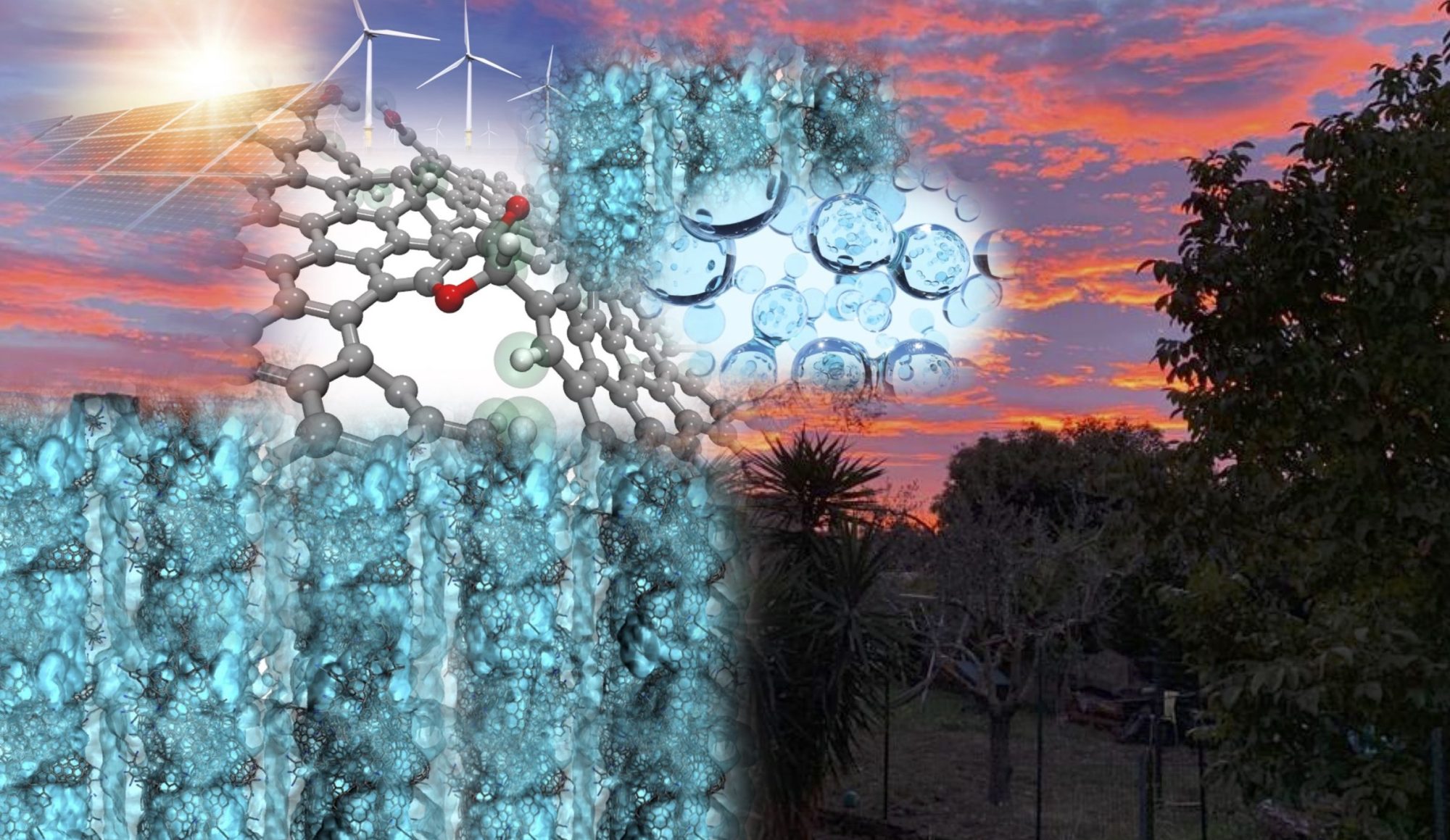Hydrogen is the green chemical energy carrier par excellence, being capable of chemically storing the largest amount of energy per unit mass and releasing only water as the byproduct of its use in fuel cells. For this reason, it is currently considered at the forefront in auto-motive and other powering technologies. However, its “green advantage” can only be exploited if all the phases of the cycle are based on renewable sources and occur without greenhouse gas emissions.
According to these guidelines, at NANO several research lines are dedicated to the development of devices and materials with optimized capabilities with respect to one or more of the phases of the hydrogen cycle, that is, production (usually from water splitting), storage, and use. We especially develop and optimize devices and material for hydrogen production and storage in solid state form.
At a more fundamental level, we also study the interaction of hydrogen with different kinds of graphene-related and other 2D materials, exploring the possibility of chemically functionalising those materials for specific advanced applications even beyond hydrogen storage.
- Metal functionalization of graphene for hydrogen storage applications
- Covalent organic functionalization of graphene for hydrogen storage and sensing applications
- Hydrogen storage in 3D graphene structures on porous 4H-SiC
- Multi scale modeling of reduced graphene oxide for hydrogen cycle
- Morphing graphene for advanced environmental and hydrogen related applications: in silico studies
- Metal-oxide nanosystems for electrodes in hydrogen fuel cells and photoelectrolyzers

